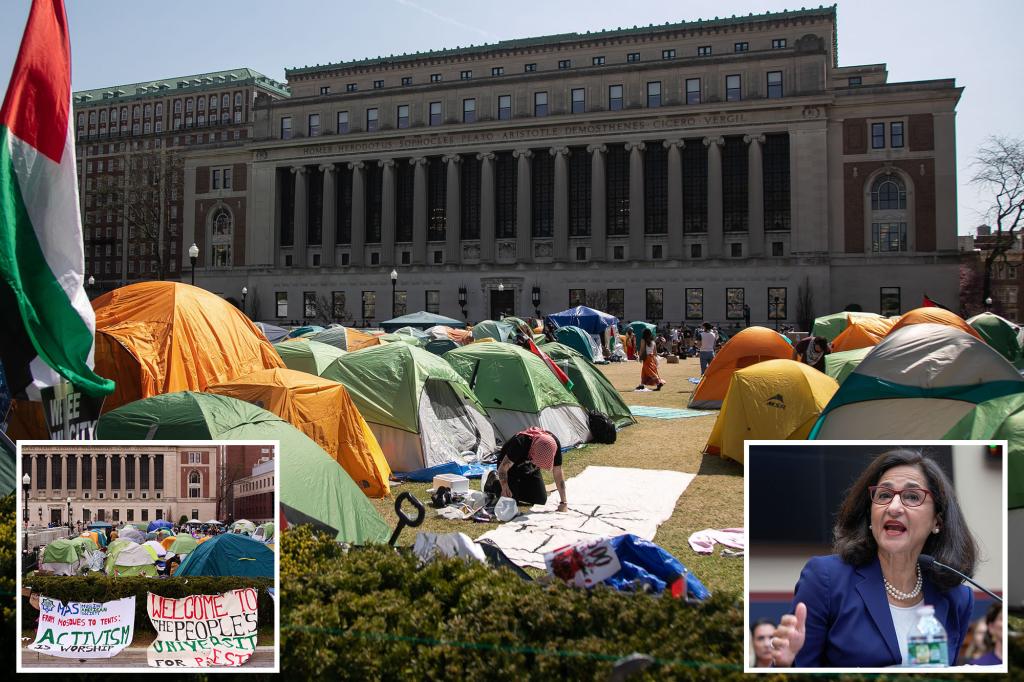Columbia University’s president, Minouche Shafik, addressed the ongoing situation with anti-Israel protesters on campus, admitting that talks with the protesters had failed. She urged the protesters to voluntarily disperse and dismantle the tent encampment that had been causing discomfort for Jewish students on campus. Shafik stated that the school was exploring internal options to end the crisis as soon as possible but did not issue an apology for the situation.
The president revealed that academic leaders had been trying to engage with student protesters since the previous Wednesday but were unable to reach an agreement. She mentioned that the administration was consulting with a broader group within the community to explore alternative internal options to resolve the crisis quickly. Shafik expressed regret that the protesters did not reach a different outcome and wished for a different resolution to the situation.
While other college presidents across the country opted to send in law enforcement to crack down on anti-Israel protests disrupting classes, Columbia’s encampment continued to persist despite previous involvement from the NYPD and arrests of protesters. Some House Democrats, led by Reps. Josh Gottheimer and Dan Goldman, called on Columbia’s board to act decisively and disband the encampment. They even recommended that trustees unwilling to do so should resign to ensure the university upholds its legal obligations under Title VI.
Shafik emphasized that college officials aimed to find a collaborative resolution to end the encampment and secure a commitment from protesters to follow specific rules to avoid disruption on campus in the future. She acknowledged that both sides had made efforts and put forward suggestions in good faith during discussions. Despite the diligent work and effort put in by all involved, a common ground could not be reached, leading to the continuation of the encampment.
The president recognized the discomfort and unwelcoming environment the encampment had created for Jewish students and faculty on campus. She mentioned that many students had left due to the intolerable atmosphere, which she considered a tragedy. Shafik clarified that Columbia had no intention of suppressing speech or peaceful protest but emphasized that demonstrations must be conducted with two days’ notice in authorized locations only to ensure they do not disrupt other students.
Overall, Shafik’s statements indicated the challenges faced in resolving the ongoing crisis with anti-Israel protesters on Columbia University’s campus. The president expressed regret that discussions with the protesters did not lead to a resolution and announced that internal options were being explored to end the crisis swiftly. Despite efforts to find a collaborative resolution that would address the concerns of both sides, talks were unsuccessful, leading to calls from lawmakers for decisive action to disband the encampment. Additionally, Shafik acknowledged the impact the encampment had on Jewish students and faculty, stating that the situation had created a hostile and unwelcoming environment on campus.













